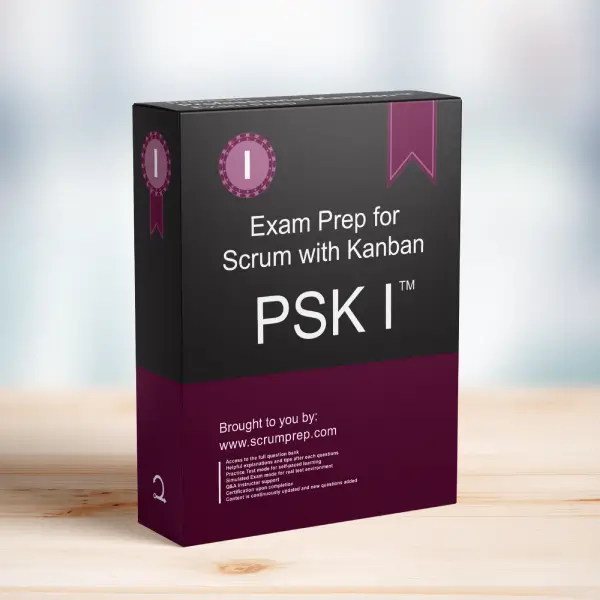Kanban Practices for Scrum Teams
Understanding which practices are part of Kanban for Scrum Teams is crucial for effective workflow management and integration of Kanban with Scrum.
Exam Question
Which of the following is NOT a Kanban for Scrum Teams practice?
(choose the best answer)
A. Identifying bottlenecks in your workflow.
B. Active management of items in progress.
C. Visualization of your workflow.
D. Inspecting and adapting workflow.
E. Limiting WIP.
Correct Answer
A. Identifying bottlenecks in your workflow.
Explanation
Correct Answer
A. Identifying bottlenecks in your workflow:
While identifying bottlenecks is a crucial aspect of workflow management and improvement, it is not specifically listed as one of the core practices of Kanban for Scrum Teams. The core practices focus on managing work items and the workflow rather than explicitly stating the identification of bottlenecks as a practice.
Core Kanban Practices for Scrum Teams
B. Active management of items in progress:
Actively managing items in progress ensures that work items move smoothly through the workflow, minimizing delays and inefficiencies.
C. Visualization of your workflow:
Visualizing the workflow using tools like Kanban boards helps the team see the status of work items, identify potential issues, and make informed decisions.
D. Inspecting and adapting workflow:
Continuous inspection and adaptation of the workflow ensure that the team can respond to changes, optimize processes, and improve efficiency.
E. Limiting WIP:
Limiting Work in Progress (WIP) helps prevent overloading the team, reduces context switching, and ensures a steady flow of work.
Importance of Core Kanban Practices
- Process Optimization: The core practices help teams optimize their processes, reduce bottlenecks, and improve overall efficiency.
- Transparency: Visualization and active management provide transparency into the current state of the workflow, helping teams make informed decisions.
- Continuous Improvement: Inspecting and adapting the workflow supports continuous improvement and responsiveness to changes.
Effective Practices for Kanban in Scrum
- Regular Monitoring: Continuously monitor WIP, workflow visualization, and actively manage items to maintain efficiency.
- Team Collaboration: Collaboratively inspect and adapt the workflow to ensure alignment and address any issues.
- Data-Driven Decisions: Use insights from visualization and active management to make data-driven decisions for process improvements.
Relevance to the PSK I Exam
Understanding the core practices of Kanban for Scrum Teams and their importance is crucial for the PSK I exam. It demonstrates knowledge of effective workflow management and the integration of Kanban practices with Scrum.
Key Takeaways
- Identifying bottlenecks is important but not a core practice of Kanban for Scrum Teams.
- Core practices include active management of items, visualization, inspecting and adapting the workflow, and limiting WIP.
- These practices help teams optimize processes, enhance transparency, and drive continuous improvement.
Conclusion
While identifying bottlenecks is important, it is not explicitly listed as a core practice of Kanban for Scrum Teams. The core practices focus on managing and optimizing the workflow. For more information on preparing for the PSK I exam, visit our Professional Kanban PSK I™ Exam Prep.



